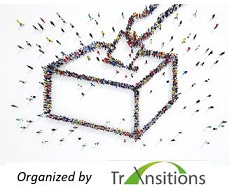Over the last decades, electoral strategies of candidates and parties have drastically changed as a result of the general trend towards a greater personalization of politics (Karvonen, 2010). In many list proportional representation (PR) systems, the importance of individual politicians was even further reinforced by personalizing electoral reforms (Renwick and Pilet, 2016).
Candidates are now increasingly running individualized election campaigns through the use of personalized campaign means (De Winter and Baudewyns, 2015; Lutz and Selb, 2010) or by exhibiting personal vote-earning attributes such as political experience, name recognition and local ties, which serve as information shortcuts for voters (Shugart et al., 2005; Arter, 2014; Tavits, 2010). The personalization of politics also changed party elites’ candidate preferences and nomination strategies (Crisp et al., 2013). Specifically, parties are interested in selecting candidates with strong vote-earning capacity and individual support bases (André et al., 2017).
This trend towards greater personalization enhances the position of individual candidates and has far-reaching consequences for the intra-party balance of power. Balmas et al. (2014) points to the difference between decentralized personalization, with a growing role of individual politicians, and decentralized personalization, referring to the increased importance of a small set of top politicians. Moreover, the dynamics of electoral competition within parties, measured by the concentration or dispersion of votes over co-partisan candidates, is strongly affected by the personalization of politics (Dodeigne and Pilet, 2019). Party elites also need to spend more time on managing their candidates and MPs, who are becoming more independent in their policy positions, have strong individual bases of support and are thus more inclined to defect from the party line (Tavits, 2009).
The objective of the workshop is to bring together a group of international junior and senior experts in electoral research to discuss and analyze the conceptual and empirical link between these two strongly related aspects of electoral competition. Given that the invited experts (1) are currently active in research projects dealing with personalization and/or intra-party competition, and (2) have compiled novel quantitative datasets on various country cases, the workshop provides the ideal opportunity to explore possibilities for cooperative research projects with a stronger comparative focus than extant work, which is often based on a single country case.

